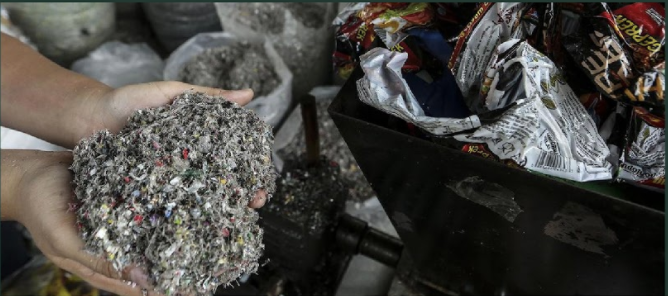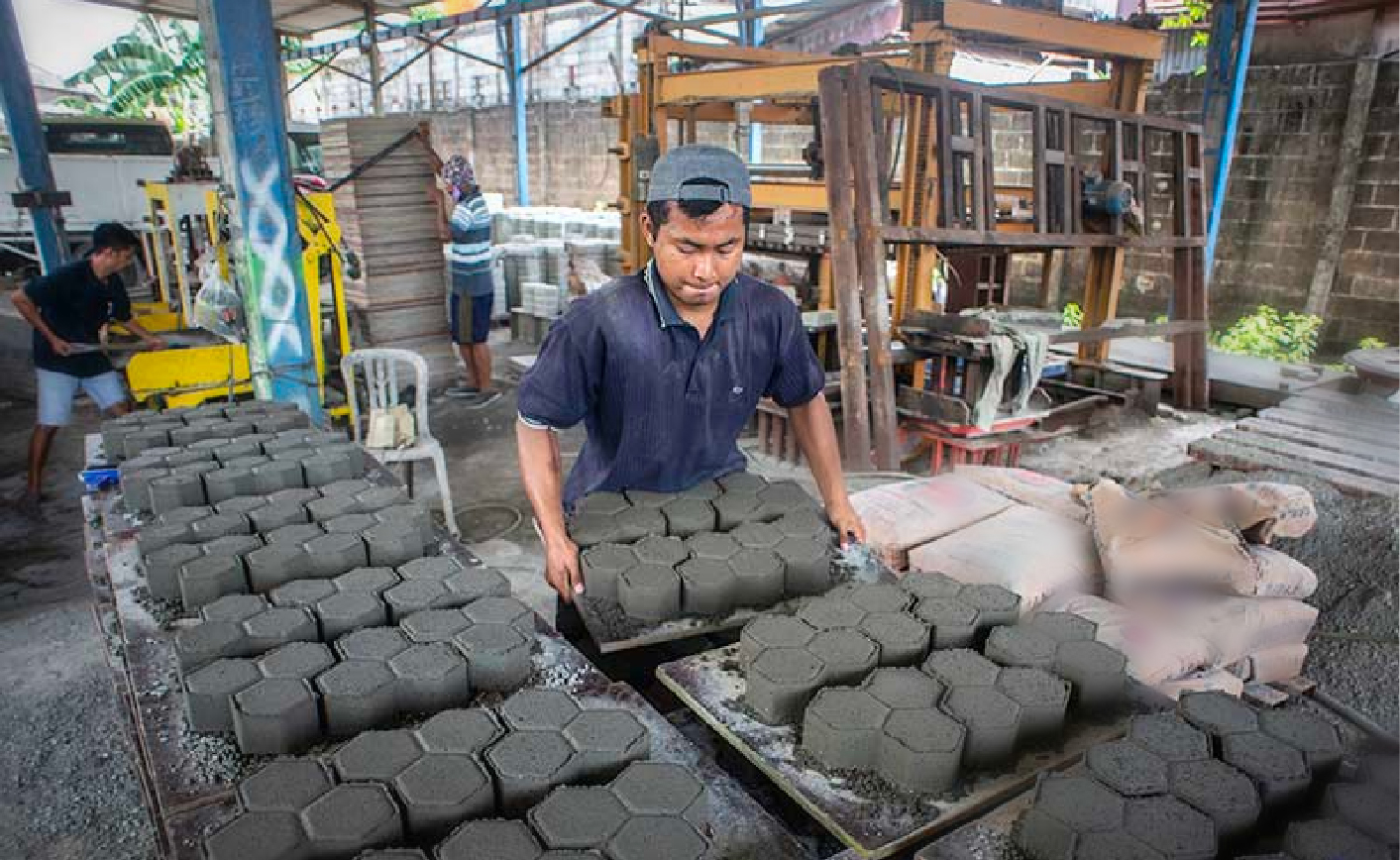By Tessa Febiani
According to the Greenpeace Report in 2019 titled Throwing Away the Future: How Companies Still Have It Wrong on Plastic Pollution “Solutions", Southeast Asia accounts for almost 50% of the global sachet market. As many as 855 billion sachets were sold globally and at current growth rates, 1,3 trillion will be sold in 2027. The region faces these massive challenges of uncontrollable plastic pollution after the aggressive marketing from FMCG companies that target low-income consumers in rural communities who are unable to afford larger containers. The packaging is a combination of laminated plastic and aluminium film, which is hard to recycle as it needs a chemical process to separate the plastic and aluminium. Therefore, it is overwhelming the municipal waste systems and contributing significantly to environmental pollution.
Rebricks is an innovative startup based in Indonesia built with a vision to create recycled building material from plastic waste that is considered rejected and usually sent straight to landfills or polluting the environment. Rebricks focused on using materials that are rarely recycled, hold no economic value, and are often seen as “waste from waste”. Sachets, unlike other plastic wastes such as plastic bottles, PET bottles, HDPE, and LDPE plastics, offer no economical value and incentive from collecting them, even the official waste management in Jakarta doesn’t buy or sell sachets waste.
From Plastic Waste into Eco-Friendly Building Materials
Rebricks has turned this environmental problem into an opportunity by creating a solution that transforms this rejected waste into recycled building materials that is not only beneficial for the environment, but also creates economic value. Rebricks produces new environmentally friendly brick, paver, hollow block, roof, and tile products. Each Rebricks’ brick is composed of two layers. The top layer contains no plastic waste to ensure that water can be absorbed without carrying plastic due to rainfall or friction. Meanwhile, the bottom layer, which makes up about 20% of the total material, is made from plastic waste.
As mentioned in Rebricks’ website, the paving block they produce has been certified for pressure power of 250 kg/cm2, meeting the Indonesian National Standard (SNI) which determines whether a building material is fit to use. It can also last between 10-20 years and weighs 2.2 kg, making them lighter than conventional blocks which weigh 2.5 kg. Rebricks offers competitive prices for their bricks that are as long lasting and strong as conventional bricks, while being non-combustible. Additionally, their paving stones remain slip-resistant even when wet.

The manufacturing process is relatively simple. However, in the development process, it is not easy to find the right formulation because Rebricks have to repeatedly do the test and research to find the desired results. The production started from collecting waste material, utilizing a self-built community called Rebrickers, consisting mostly of households who are aware of sorting their plastic waste, but are unsure of how to dispose of it. On average, they collect 50 kilograms of plastic waste per day, or around 15-20 packages per drop point. Then, the plastic waste is shredded, mixed with other materials, compacted, and printed. Rebricks claims that they have a production capacity of 100 m2 per day.
How Plastic Waste Recycling Benefits Society and the Environment
Rebricks’ recycling machine can process 88,000 plastic sachets daily with production capacity of 100 m2 per day, stopping them from being rejected and ending up in landfills or ocean. At full capacity, this mass production is equivalent to preventing 33 million plastic sachets from polluting the planet annually. By September 2024, Rebricks had received 17,500 kg of plastic waste and made 10,000 kg of processed products.
The key principles of this production facility include their green method, where the material being shredded and moulded without burning, designed and sealed to prevent microplastic leaks. Additionally, the facility also implements a circular economy with bricks having a possible lifetime of over 20 years, making them reusable, recyclable, and remanufactured, with mass production to meet the consumer’s needs.

Recognition through Awards and Community Engagement
Rebricks’ solutions have earned a number of awards, including the Circular Innovation Jam 2020 organized by The Incubation Network, Greenship Award 2022, ICLIF Leadership Energy Award (ILEA) 2022, and the Tempo Circular Economy Award 2023. Their product has also passed the Combusting Test British Standard 476 for fire test in building material and structure, Ministry of Industry’s Pressure Strength Test, and categorized in SNI class B criteria, making it suitable for parking lots, pedestrian paths, and parks.
Their social media campaign is praised for being able to raise awareness to the society about plastic waste. They receive a lot of plastic waste from donors across the country. People are now becoming more and more aware of how to dispose of their plastic waste, especially plastic sachets that are considered useless and rejected by waste banks.
In line with Rebricks’s mission to provide solution to Indonesia’s plastic waste problem, the startup is not only creating business value, but also delivering social and environmental impact. They are making their way for a sustainable future by transforming plastic waste into innovative and eco-friendly building materials, contributing to environmental preservation, community awareness, and waste management.
Source:
https://rebricks.id
https://aim2flourish.com/innovations/rejected-plastic-into-building-material
https://waste4change.com/blog/rebricks-kelola-sampah-kemasan-plastik-menjadi-bahan-bangunan/
